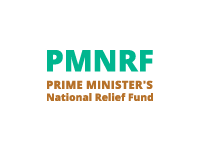Dr. Charu WaliKhanna, Member, NCW, Chaired session on ‘Legal perspective – Sexual Harassment at Workplace’
Dr. Charu WaliKhanna, Member, NCW, Chaired session on ‘Legal perspective – Sexual Harassment at Workplace’. The National Consultation on “Sexual Harassment at Workplace – Strategies for Prevention” at IIC, New Delhi was organized by All India Women’s Conference on 23.11.2013.
The Chief Guest of the programme was Ms. Gyan Sudha Misra, Judge, Supreme Court of India who inaugurated the day long consultation.
Dr. Charu WaliKhanna, Member, as Chair of the session expressed her concern over the recent media reports sensationalizing allegations of sexual harassment of women at workplace and stressed on the need to expedite the framing of the rules under Section 29 of the Sexual Harassment of Women at Workplace (Prevention, Prohibition and Redressal) Act 2013 which received assent of the President on 22 April 2013.
The other speakers in the session include Mr. Sidharth Luthra – Senior Advocate, Additional Solicitor General, Govt. of India, Dr. Pinki Anand, Senior Advocate, Supreme Court of India, and Ms. Prakriti Shriavastava – Director (Admn) Ministry of Finance.
Discussed was the need for definition of who is employer in the Rules since the entire responsibility of prevention and action is on the employer. The problem may not arise in large organizations but what about partnerships, sole proprietorship or small organizations. Who is the employer on whom the burden of prevention rests? Often the employer himself is the predator (as seen in recent cases). As per the draft rules regarding submission of annual reports by the complaints committee to employer / district officer, whether it is practicable for employers in the unorganized / informal sector to do this paper work when a large number of them are not even registered for sales tax, VAT, or income tax etc.
She stressed on the need for the rules to make training programmes mandatory which are essential to sensitise/train members to recognise sexual harassment, deal with it when it occurs and prevent it. The training programme is the best way to ensure proper understanding and implementation of the Act. It is the best forum to communicate to employees what behaviour is acceptable and what is not, in a non-threatening atmosphere of mutual learning. She pointed out that the draft rules framed should be doable, and recommended the format of the PWDV Rules 2006 which include a series of forms elaborating on the definition and examples of violence.
The Rules should make it mandatory for the State to issue a strong policy from the top authority against sexual harassment taking a "zero tolerance" approach.
The rules need to make provisions for different complaints channels by elaborating on the different routes that employees can take to file complaints; i.e., contacting the responsible authority for sexual harassment, a supervisor, calling a hotline, complaining through email, etc. The confidentiality clause, provision for employer restraining the respondent interacting with the complainant need to be included.
Ms. Prakriti Srivastava spoke about the CCS Rules which are at present, being applied to the cases of sexual harassment at workplace though these are meant for disciplinary inquiry against a government official and prescribe the procedure for a quasi judicial hearing.
On being asked whether the police could register an FIR without a complaint being filed Mr. Sidharth Luthra, ASG said the Sexual Harassment Act is in addition to the existing legislation. The offences that are cognizable under the IPC are not non-cognizable after this Act. The provisions of this Act refer only to the offences punishable purely under the Sexual Harassment Act.




















